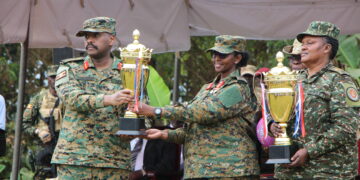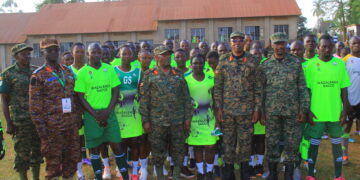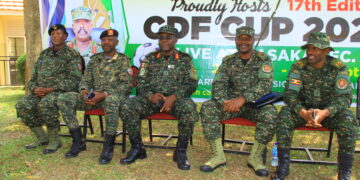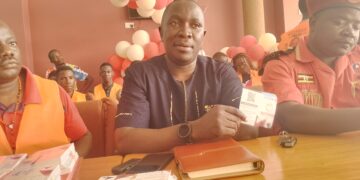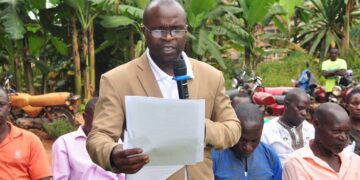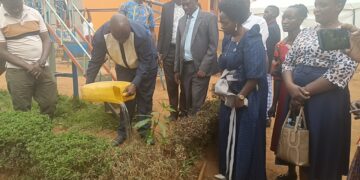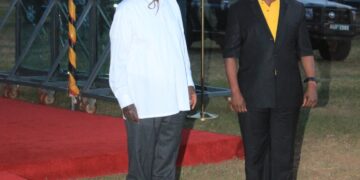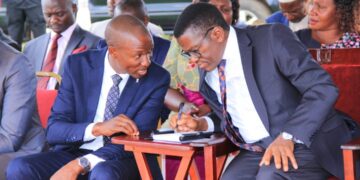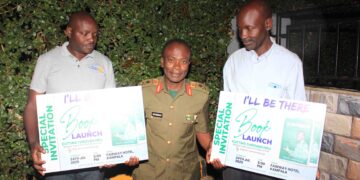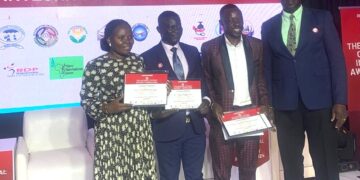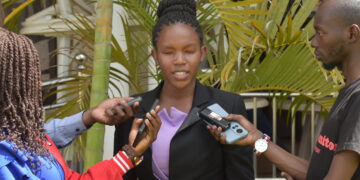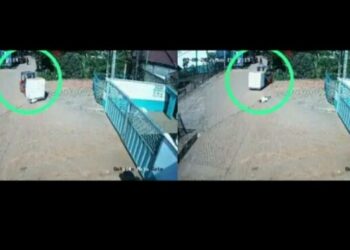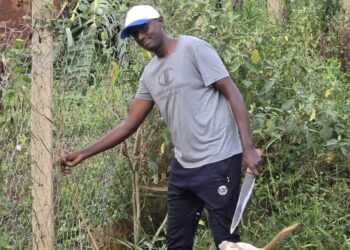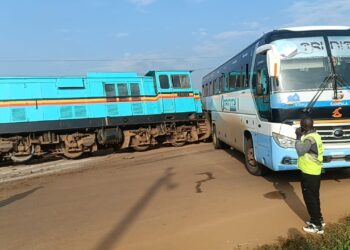A new report by four Ugandan policy researchers and activists has raised alarm over the military’s growing influence in the country’s political transition, warning that Uganda is edging toward a fully militarised regime under the guise of civilian governance.
Titled “Guns Everywhere! The Military and Transition Politics in Uganda,” the report highlights recent political and legislative developments as evidence of the erosion of civilian authority and the emergence of a parallel military state.
Authored by Godber Tumushabe, city lawyer Andrew Karamagi, Barnet Musasizi, and Job Kiija, the report traces the evolution of Uganda’s military from the colonial era to the present day.
It contends that the Uganda People’s Defence Forces (UPDF), despite being rebranded under the 1995 Constitution, remains a partisan force loyal to President Yoweri Museveni and the ruling National Resistance Movement (NRM).
Rather than transitioning into a neutral national army, the UPDF, the report argues, continues to operate as a tool of political consolidation, rooted in the National Resistance Army (NRA) that captured power in 1986.
Speaking during a pre-launch event in Kampala, Tumushabe said the report documents a series of incidents over the past three years that demonstrate the military’s increasing intrusion into civilian life.
These include the deployment of armed forces during the 2025 Kawempe by-election, abductions of opposition figures, and the forceful entry of soldiers into Parliament to influence legislative outcomes.
Particularly concerning, according to the report, is the Uganda People’s Defence Forces (Amendment) Act passed in May 2025. The legislation grants sweeping powers to military courts, including the authority to try civilians—despite prior Supreme Court rulings declaring such practices unconstitutional.
The authors describe these developments as part of a “slow-motion coup,” in which military influence gradually displaces civilian institutions without an outright takeover.
They caution that Uganda is already experiencing the worst-case scenario laid out in a 2021 political transition paper, which they termed the “Warrior-Mad-King” scenario—defined by authoritarian entrenchment, the militarisation of governance, and the rise of a powerful military elite.
A focal point of the report is the expanding role of the Special Forces Command (SFC), a unit previously led by Gen. Muhoozi Kainerugaba—President Museveni’s son and the current Chief of Defence Forces.
The SFC, the report notes, has far exceeded its original mandate and now operates as a de facto parallel military structure, described by the researchers as “an army within an army.”
While the report acknowledges the UPDF’s contributions to regional peacekeeping and humanitarian missions, it warns that such efforts are being overshadowed by its domestic role in suppressing dissent and consolidating political control.
The authors draw comparisons with countries like Chad, Togo, and Gabon, where militarised dynastic rule has become entrenched.
The report concludes that Uganda’s political system is being structurally reoriented toward military dominance. It calls for urgent measures to restore civilian oversight, protect constitutional rule, and avert a full democratic breakdown.
During the public dialogue, participants emphasized the need to educate Ugandans about the true meaning of peace and security. Some argued that the military’s visible presence in civilian life is more reflective of intimidation than law enforcement.
Retired Major General Mugisha Muntu, a former UPDF Chief of Defence Forces, urged Uganda’s elites and civil society to unite in the fight for constitutional change. “If change is to come,” he said, “it must be driven by a unified citizenry committed to democratic ideals.”
The full report is expected to be released in August. It is based on findings from a seven-month inquiry into the military’s influence in Uganda’s political, economic, religious, and social spheres.
It was compiled under the auspices of the non-profit organisations Innovations for Democratic Engagement and Action (IDEA) and the Great Lakes Institute for Strategic Studies (GLISS), with a call for nationwide dialogue ahead of the 2026 general elections.




